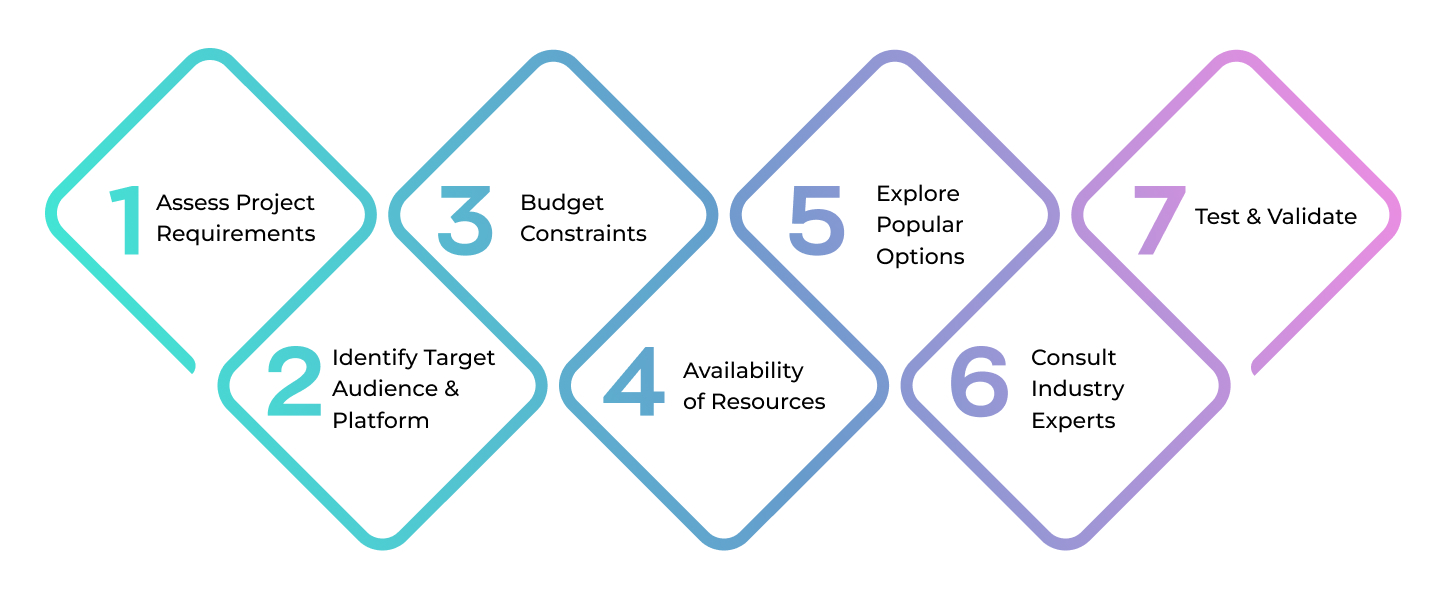- Oct 23, 2025
Share this post on:

Programming languages are the base and backbone of any innovation occurring in the modern computing world and help people create software applications. These languages enable automation, solve complex problems, perform data analysis, build artificial intelligence systems, and manage databases.
The software runs everything from smartphones and computers to medical equipment, transportation systems, and entertainment technologies. Therefore, learning a programming language can improve an individual's understanding of technology and open up new career opportunities.
They allow humans to communicate with computers and create powerful software applications that perform complex tasks efficiently.
How do programming languages affect our lives?
Programming languages are essential tools for building software applications and websites. They provide developers with syntax and constructs that allow them to create complex systems from simple instructions.
Here are some reasons why programming languages are so important:

- Essential for Computer Science: Programming languages are at the heart of computer science. Without them, we would not have any of the advanced technology that we see today. It includes smartphones, laptops, online banking systems, social media platforms, and video games. They make it necessary for humans to communicate instructions directly to computers without needing technical knowledge of their inner workings.
- Creativity and Communication: With programming languages, developers can build new things that were not possible before. Coding unlocks the potential of developers and helps them come up with innovative solutions to real-world problems. Programming languages serve as a common language among developers worldwide. Programmers use programming languages to collaborate and share ideas across different cultures and time zones.
- Productivity: Programming languages make development faster by allowing developers to automate tasks. Coding allows teams to work more efficiently and quickly deliver products to market.
Many business processes are looking to be automated through programming languages to increase efficiency, reduce costs, and improve accuracy. For instance, data analysis can take hours, weeks, or months manually, but with the help of programs, many firms process large amounts of data quickly.
Additionally, web development using HTML, CSS, JavaScript, PHP, Ruby, and other programming languages has revolutionized eCommerce and communication. These languages have enabled online shopping websites, social media networks, and virtual collaboration tools.
- Scalability and Innovation: As software becomes more complex, programming languages become crucial to managing and maintaining large codebases. They allow teams to scale up their products without much complexity.
Moreover, programming languages enable innovation by providing foundations for building new technologies. Without these languages, we would not have smartphones, social media, or self-driving cars.
- Enhanced Education: Programming languages have made learning easier, more interactive, and fun, even at early educational levels. Programming languages help students learn basic algorithms principles and problem-solving skills. Moreover, programming projects often form part of graded assignments or final thesis submissions at higher academic levels.
Top Popular Programming Languages for 2023
Choosing the right programming language can significantly impact your organization. The coding languages you use for development decide the productivity and efficiency of your product and help you stay ahead of the competition.
The following are the most popular programming languages that can lead the future.

JavaScript
JavaScript was developed in 1995 and is a lightweight, cross-platform, and interpreted programming language commonly used in web applications. It also supports server-side execution through Node.js. There are countless libraries and frameworks built on top of JavaScript.
JavaScript is easy to learn as compared to other programming languages since it follows simple syntax rules. It relies on functions and objects in its design; however, it often leads to compatibility issues due to inconsistent behavior between browsers.
It is one of the most versatile and widely used programming languages in the world. Numerous developers use this language because of its widespread adoption due to its versatility, power, and flexibility. Here are a few benefits that JavaScript offers.
- Interactivity: One of the main advantages of JavaScript is its ability to create dynamic, interactive experiences on web pages. JavaScript helps you build hover effects, animations, popups, sliding panels, and more.
Additionally, it allows users to interact with websites, search content, or sort information on-screen without refreshing pages or leaving sites entirely. Interactive elements make websites feel alive and keep visitors engaged for longer.
- Fast Loading Times: JavaScript improves website loading speeds; as a result, bounce rates reduce and provide better overall browsing experiences. Users expect speedy page loads, and slow-loading pages lead to frustration and lost customers. By leveraging JavaScript, developers ensure efficient site functionality and quick access for viewers worldwide.
- Enhanced User Engagement: With JavaScript, you can manipulate user interfaces and provide personalized experiences tailored to individual preferences. For instance, recommendation algorithms use JavaScript APIs to analyze user behavior and offer custom suggestions designed for them. These kinds of features increase user satisfaction and keep visitors engaged. Personalization is key to online marketing strategies. It boosts the brand’s loyalty and drives sales growth.
HTML
HTML stands for HyperText Markup Language, which is a markup language that describes web documents using plain text. HTML uses basic text commands to create structure, giving the coder control over formatting and structure. It can be read and displayed on any device or operating system.
Let us take a closer look at some of the benefits offered by HTML:
- Accessibility: HTML is a standard markup language that makes it easier for search engines to understand your content. It means that even if someone cannot physically view a website, they will still have access to the critical information you want to share.
- Scalability: With the rise of mobile devices, responsiveness is more crucial than ever before. Nowadays, mobile traffic is higher as compared to website traffic. HTML adapts seamlessly, ensuring that your website is scaled regardless of the device being used. This scalability reduces development time, streamlines maintenance tasks, and minimizes costs associated with resizing web materials.
- SEO Optimization: Search engine rankings play a crucial role in gaining exposure for your online business. HTML enables website creators to optimize their content for specific keywords, meta descriptions, titles, header tags, and internal linking structures. HTML makes it possible to improve a website’s visibility and draw more relevant traffic to your platform.
- Cost Savings: Compared to other website development tools, HTML is less costly to implement, maintain, and upgrade. HTML frameworks are becoming popular among web developers. It gives small enterprises access to high-quality resources that would not otherwise be affordable.
SQL
Structured Query Language (SQL) interacts with relational databases. SQL performs various operations such as querying, inserting, updating, deleting, etc. It is often considered one of the foundations of modern database systems and has been adopted widely across large and small industry segments.
Here are a few closer looks at some of the benefits offered by HTML:
- Reliability and Consistency: SQL databases provide high levels of reliability and data integrity when they are properly designed, implemented, and maintained. SQL allows users to leverage database functions and keep corporate records accurate and consistent.
- Scalability and Performance: SQL databases continue to serve organizations effectively even when the data volumes grow. It can thus gather numerous concurrent queries, massive data sets, and user concurrency.
- Efficient Data Management: Organizations can create custom queries to extract the information they need. Users can sort, filter, join, aggregate data, and provide insights that can help in strategic decision-making.
Python
Python is a high-level, object-oriented programming language known for its simplicity and readability. It is one of the most widely used programming languages due to its ease of use, versatility, and unparalleled support for developing algorithms and applications.
It is used in research institutions, education, finance, robotics, artificial intelligence, machine learning, and data analytics. Let us take a closer look at some advantages offered by Python.
- Libraries: Python has numerous third-party libraries and frameworks, that help in application development across various domains. The libraries range from machine learning and deep learning modules to natural language processing and computer vision packages. The process of developing applications becomes streamlined with Python's ready-to-use library of tools and is both time and money-saving.
- Simple Syntax and Ease of Learning: Python offers a simple syntax that is easy to learn. It attracts beginner programmers who want to understand the fundamental concepts. Moreover, it encourages experimentation, making it perfect for educational purposes where students learn about problem-solving techniques using a real-world tool.
- Wide Community Support: Another advantage of selecting Python is that it comes with a vibrant developer community. Moreover, it also provides open-source machine learning packages such as Scikit-Learn, which enable users to build predictive models.
- Scientific Research: Scientists and engineers deal with various numerical computations and data processing in their day-to-day work. Python makes it easy to carry out computational tasks quickly and accurately due to its strong support for mathematical functions and operations.
PHP
PHP (Hypertext Preprocessor) is a server-side scripting language designed for web application development. It combines features of both high-level programming languages and markup languages. It makes PHP a flexible choice for web developers who want to add interactive elements and custom logic to their sites.
Popular PHP web development frameworks include WordPress, Laravel, Symfony, and Yii.
- Open Source: PHP is free and open-source software, meaning business owners save money on license fees and have greater control over system configurations. The open-source status guarantees constant improvements to the core platform and regular release cycles, keeping your site up-to-date.
- Rapid Application Development: PHP enables rapid prototyping and application development due to its lightweight architecture. Developers can develop, test, debug, and deploy new features without hassle, saving significant development costs and time.
- Scalable Architecture: PHP is an ideal choice for small startups due to its scalability. Also, its multi-threading and multiprocessor support make it heavy traffic-friendly and do not disturb page load times or response speeds.
- Compatibility: PHP runs smoothly on almost every hosting provider and server infrastructure around the globe. It makes it possible to host and manage websites without any complexity.
- Easy to Learn: PHP is relatively simple to learn for beginners. Many online tutorials and documentation sources offer step-by-step guides to understanding the concepts.
Choose the Right Programming Languages for Your Business in 2023
Selecting the programming language for your business depends on several factors. These factors include the nature of the project, available resources, budget constraints, target audience, and future growth plans.
Here is a step-by-step guide on how to choose the programming language for your business:

- Assess Project Requirements: Analyze the requirements of your project and identify the specific features you need. Consider factors like scalability, security, performance, ease of maintenance, user interface, and data management needs.
- Identify Target Audience and Platform: Determine who your target audience is and whether they require mobile, web, desktop, or cross-platform solutions. Also, consider whether you plan to deploy your application on multiple platforms.
- Budget Constraints: Calculate your overall budget and determine how much you can spend on hiring developers and maintaining the system. Some development processes demand a higher budget than others, which can affect your bottom line.
- Availability of Resources: Evaluate the availability of skilled professionals who are well-versed in the chosen programming language. If insufficient experts are available, pick a widely adopted language with a large community support network.
- Explore Popular Options: Research popular programming languages used in industries relevant to yours. The examples include Python for Data Science, JavaScript or TypeScript for frontend web development, and Ruby on Rails for web development.
- Consult industry experts: Seek advice from industry leaders, consultants, or advisors who specialize in technology. Their expertise can help you make informed decisions that align with your company's goals.
- Test and validate: Try developing small prototypes or proof-of-concept (PoC) applications using the finalized language. Test these PoCs against your actual needs and gather the required feedback.
Conclusion:
Choosing the programming language as per your requirements requires careful consideration. Also, companies must prioritize the skills of employees and third-party providers within a given language ecosystem. Building a productive team environment and supporting professional growth through training programs minimizes the risks associated with a "wrong" language choice.
So if you are seeking our professionals who can guide you through all the languages that can be crucial for your business?
Look no further than ToXSL Technologies. We have a team of experts who are well-versed in programming languages. Our professionals understand clients’ businesses and guide them correctly. To learn more, contact us.












